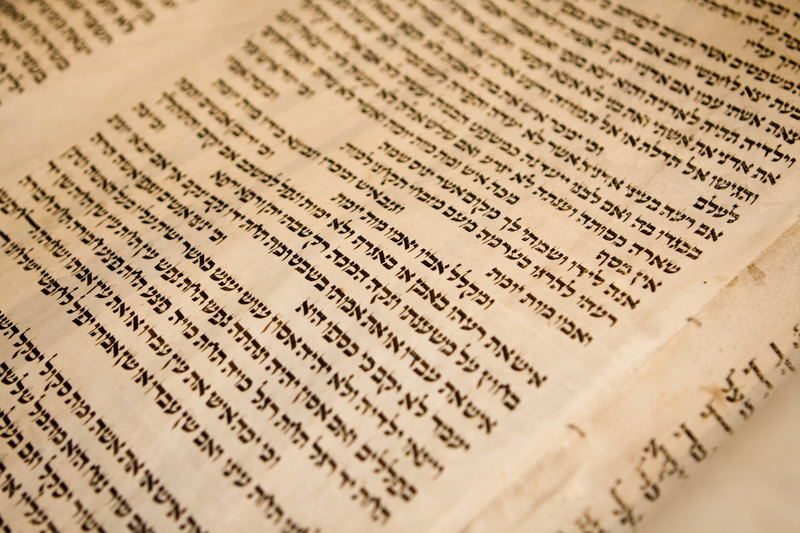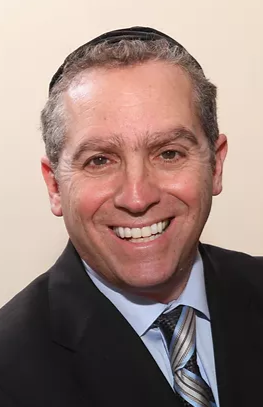
The Perashah begins with the Pasuk: "Atem nitzavim hayom kull'chem lifnei Hashem Elokechem." "You are standing today, all of you, before Hashem your God." Moshe is telling B'nei Yisrael: You made it! You came through the desert for 40 years and you reached your destination, Israel the Promised Land is just beyond the Jordan River!
Rashi presents a Midrash that explains why Moshe spoke these words right after last weeks parasha Ki Tavo that listed all the K'lalot (curses) which will befall B'nei Yisrael if they deviate from the words of the Torah. The reason is that when B'nei Yisrael heard the 98 curses, they turned pale, asking, "Who can possibly endure these curses?"
This verse is the reply with which Moses appeased them: he assured them that they are still standing and ready to accept their role as G-d's chosen people. Its the same for us today, we are now within one week of Rosh HaShanah and we are also still standing! We're approaching the last days of the month of Elul and we're preparing for Rosh Hashanah, when Hashem will judge us all for this past year and He will determine whether to grant us another year of life.
There's a Gemara in Masechet Rosh Hashanah (18a), that discusses two people who are suffering with the same exact life-threatening illness and two others who are dealing with the same exact financial crisis. The ones who have the disease pray to Hashem for a Refuah and the two who have the financial problem pray for financial help. One person in each situation is answered and the other one is not. So the question is asked: "Why was one answered and the other one not answered?"
Rashi answers this question, explaining that one prayed with Kavanah (concentration) and the other one didn't. Rabbi Lopian comments that it’s impossible that a person who is sick with a life-threatening disease or someone with a financial crisis will not pray with great Kavanah from his heart! So Rabbi Lopian answers, that what Rashi is saying is that one person didn't really believe that Hashem would be able to help him and the other did. If you believe that Hashem will help, those prayers are answered. We have to pray with Kavanah, and that means a strong belief that Hashem will actually come to our rescue!
As Jews we must believe that Hashem is there for us and will help us like a father, because He is our father in heaven, but we must truly believe that He has the power to help us. That's why when we pray on Rosh Hashanah we recite the words: "Avinu Malkenu" which means, "Our father, Our king". We pray to Hashem as our father first because our own father wants to give us everything but he may not be able to. But then we pray to Hashem as "Our King" because as a king, He has the ability to give us anything we want, including a Refuah or good Parnasah or anything else that we may feel is beyond the reach of our father.
Rabbi Diamond elaborates on this concept to explain how Hashem's mercy is with us through the following parable; "A father has a son who gets addicted to drugs and no matter what the father does, he can't get the son to straighten out and get off his drug habit. Eventually the son runs away.
Then one day, many years later, the son calls the father and he just says these six words to his father: "Dad, I WANT TO COME HOME!" So the father says to his son, "Ok son, I'll come and get you. Where are you?" And the son says, "But dad, I'm addicted to drugs!" The father says, "Don't worry, son. I'll send you to rehab and you'll get off the drugs!" The son answers, "But dad, I'm sick!" And the father says, "Don't worry, son, I'll get you the best doctors to take care of you and make you better!"
That story is about us; all our lives we may have committed certain sins and now years later, all we have to do is tell Hashem, our father in heaven one thing: "I want to come home" and Hashem will take us back with open arms and forgive us, but we just have to take that first step!
On Rosh Hashanah we must recognize Hashem as our King of Kings in Heaven, "Melech HaMelachim," and even though we keep on repeating the same sin over and over again, even if it’s been a thousand times, still Hashem as our boss in heaven doesn't fire us. He has unlimited patience and gives us a chance to make Teshuvah every year, if we choose to take advantage of this gift of Teshuvah that Hashem gives us!
Rabbi Diamond also taught us two very important rules to remember...
1) Teshuvah is easy: all we have to do is grab on to it and not let go!
2) Don't look back; don't get stuck in the mud; forget the sin and move forward!
Rabbi Ephraim Wachsman was in Deal a few weeks ago and spoke to us about Elul and Rosh Hashanah. The Rabbi told us a story of the famous Baron de Rothchild, the super wealthy banker. The story goes that he had a financier that was employed by his bank who was his right-hand man. The Baron noticed that his financier was getting haughty and becoming full of himself, and that was something the Baron would not and could not tolerate, so he decided to fire him.
The financier was devastated but he accepted it and went out to find another job. He went for interviews for a job at the other banks, but he was turned down each time. He couldn't understand it, since he was very qualified and his credentials were excellent. He later found out that the Baron had sent word to all the other banks not to hire him. He was despondent and discussed the matter with his wife who was a smart woman.
She said,"We know that the Baron isn't a spiteful person, on the contrary he's a very good person, so there must be a valid reason why he's doing this to you". They both thought about it, and then his wife said, "It must be that he really wants you back and that's why he's preventing you from getting a new job at another bank."
Rabbi Wachsman then used that story as a mashal to explain that Hashem also wants us back. He wants us to come home. Throughout the past centuries the Jewish people have been exiled from one country after the other. Yet Hashem in His great mercy is not punishing us, but rather he's showing us His love and telling us that when we begin to assimilate with a foreign culture, and then are rejected and pushed away by that culture, Hashem is saying to us that He wants us to come back to Him and become closer to Him. Hashem wants our hearts and He truly wants us to come back home to Him!
We should all merit to be put into Hashem’s book for another year of life and we should all merit Hashem's mercy! We should also be able to recognize the sins that we have done, and cry out to Hashem our father that "We Want to Come Home" and make a commitment to learn more and accomplish more, so that we can go into this Rosh Hashanah with the confidence that our Teshuvah will be accepted with open arms like a father to his long lost son! Amen!
May we all realize that Hashem is our King in heaven but he's also our Father who loves us and only wants to do good for us no matter how difficult our lives may be. Hashem is always with us and he's giving us exactly what we need to succeed. All we have to do is our part by following the Torah and doing the Mitzvot which will bring us to a level where we will be able to recognize and believe that Hashem is here for us always, like a father who has unconditional love for us! Amen!
Wishing Everyone a Happy, Healthy and Fulfilling Year of Accomplishments, Mitzvot and Maasim Tovim! Amen!
Parasha perspective By Jack E. Rahmey from the teachings and guidance of Rabbi Amram Sananes.








